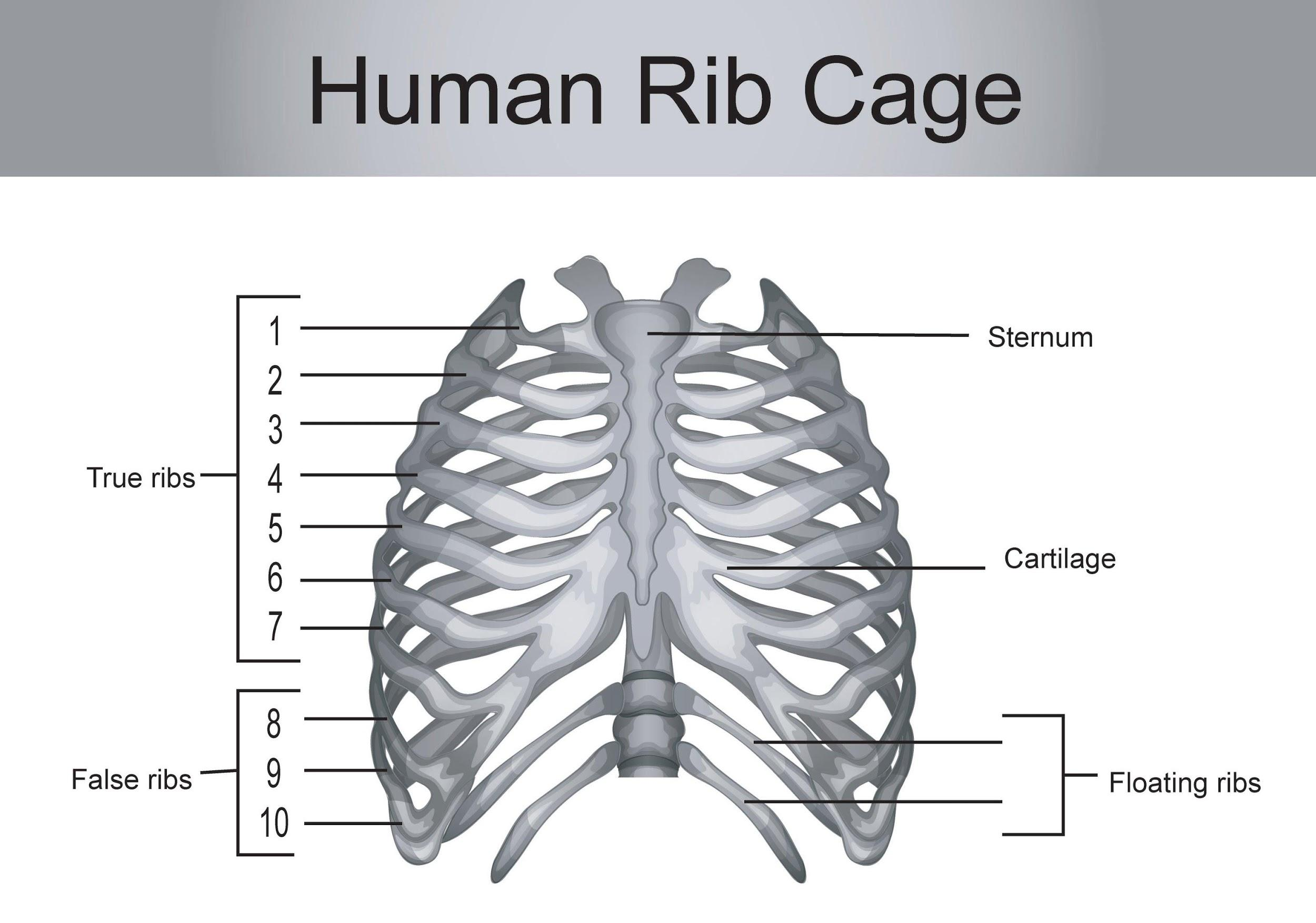How Many Ribs Do Men Have: Unraveling the Anatomy
The human body is a marvel of complexity, and its skeletal structure plays a vital role in providing support and protection. One commonly asked question is, "How many ribs do men have?" In this article, we'll explore the fascinating anatomy of ribs, their functions, and how they differ between genders.

Male and female rib
1. The Anatomy of the Ribcage
The ribcage, also known as the thoracic cage, consists of 12 pairs of ribs that are strategically aligned along the spinal column.
These ribs are not just simple bone structures; they are shaped to accommodate the curve of the chest, forming a protective enclosure around vital organs such as the heart, lungs, and major blood vessels.
2. Breathing Mechanism and Ribcage
The ribcage is a key player in the process of respiration, enabling the expansion and contraction of the chest cavity during breathing.
As we inhale, the muscles between the ribs (intercostal muscles) contract, causing the ribcage to move upward and outward. This expansion lowers the air pressure in the lungs, allowing air to rush in.
Exhalation involves the relaxation of these muscles, causing the ribcage to return to its resting position.
3. Ribs: A Symphony of Diversity
The ribs aren't all the same; they come in different types with distinct characteristics.
The first seven pairs are termed "true ribs" as they directly connect to the sternum through costal cartilage.
The next three pairs are "false ribs"; they attach to the sternum indirectly.
The last two pairs are "floating ribs," not connected to the sternum at all. This diversity in rib structure adds to the ribcage's flexibility and functionality.
4. Did Adam Really Lose a Rib?
There's a common myth that men have one less rib than women due to the story of Adam and Eve in religious texts. According to the story, Eve was created from one of Adam's ribs.
However, this is merely symbolic and not biologically accurate. Both men and women have the same number of ribs—12 pairs each.
5. Ribcage and Common Ailments
While the ribcage is a robust structure, it is not immune to injuries. Rib fractures are a common occurrence, often resulting from accidents, falls, or impacts.
These fractures can lead to pain, difficulty breathing, and even potential complications if not managed properly. Moreover, conditions like costochondritis, inflammation of the cartilage connecting ribs to the sternum, can also cause discomfort.
6. Nurturing Your Ribcage
Maintaining a healthy ribcage involves more than just protecting it from external impacts.
Engaging in regular physical activity, particularly exercises that strengthen the core and intercostal muscles, can provide better support to the ribcage.
Additionally, practicing good posture is essential, as slouching can compress the ribcage and hinder optimal breathing.

Human rib
The human body's intricacies never cease to amaze, and the ribcage is a prime example of its remarkable design. Both men and women share the same number of ribs—24 pairs—underscoring the importance of accurate anatomical knowledge. Understanding the function of ribs and their role in protecting vital organs is a reminder of the intricate balance that allows our bodies to function optimally.